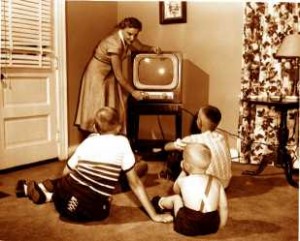I know it has been quite some time since I last wrote a blog post article. I have been quite busy at work and at home. I will do my best to try to write some more again. Today’s blog post is not about diseases or prevention thereof, but rather about priorities in life. 
With all of us having busy lives, we sometimes tend to forget to cherish the little things in life. This blog post is just to remind us of some of the important things in life.
Moral story:
“SON: “Daddy, may I ask you a question?”
DAD: “Yeah sure, what is it?”
SON: “Daddy, how much do you make an hour?”
DAD: “That’s none of your business. Why do you ask such a thing?”
SON: “I just want to know. Please tell me, how much do you make an hour?”
DAD: “If you must know, I make $100 an hour.”
SON: “Oh! (With his head down).
SON: “Daddy, may I please borrow $50?”
The father was furious.
DAD: “If the only reason you asked that, is so you can borrow some money to buy a silly toy or some other nonsense, then you march yourself straight to your room and go to bed. Think about why you are being so selfish. I work hard everyday for such this childish behavior.”
The little boy quietly went to his room and shut the door.
The man sat down and started to get even angrier about the little boy’s questions. How dare he ask such questions only to get some money?
After about an hour or so, the man had calmed down, and started to think:
Maybe there was something he really needed to buy with that $ 50 and he really didn’t ask for money very often. The man went to the door of the little boy’s room and opened the door.
DAD: “Are you asleep, son?”
SON: “No daddy, I’m awake”.
DAD: “I’ve been thinking, maybe I was too hard on you earlier. It’s been a long day and I took out my aggravation on you. Here’s the $50 you asked for.”
The little boy sat straight up, smiling.
SON: “Oh, thank you daddy!”
Then, reaching under his pillow he pulled out some crumpled up bills. The man saw that the boy already had money, started to get angry again. The little boy slowly counted out his money, and then looked up at his father.
DAD: “Why do you want more money if you already have some?”
SON: “Because I didn’t have enough, but now I do. Daddy, I have $100 now. Can I buy an hour of your time? Please come home early tomorrow. I would like to have dinner with you.”
The father was crushed.
He put his arms around his little son, and he begged for his forgiveness.
It’s just a short reminder to all of you working so hard in life. We should not let time slip through our fingers without having spent some time with those who really matter to us, those close to our hearts. Do remember to share that $100 worth of your time with someone you love. If we die tomorrow, the company that we are working for could easily replace us in a matter of days. But the family and friends we leave behind will feel the loss for the rest of their lives. And come to think of it, we pour ourselves more into work than to our family.
- Author Anonymous
Enjoy your kids, spouse, parents etc. Make the time to actually be there mentally when you are there physically. Try to keep work at work. If you truly need to work at home, make it a point to do so after the kids are asleep. But ideally try to plan your day such that you leave work at work. Your kids and spouse will love the attention, and you will feel even more enjoyment from them! 












